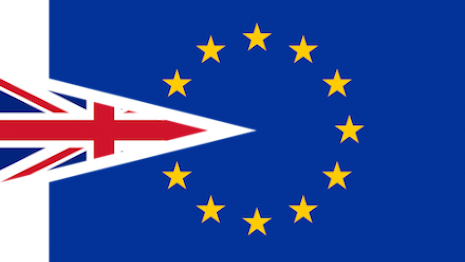A parliamentary vote on Prime Minister Theresa May’s plan to take the United Kingdom out of the European Union has failed, leaving the nation with an uncertain path forward.
As the March 29 deadline for Brexit looms, the House of Commons showed strong opposition to the current negotiated deal with the European Union, with 432 members voting against it compared to 202 pro-deal votes. The potential for a no-deal exit from the organization still exists, causing concern among business sectors that rely on cross-border trade, talent and travel.
No vote
In December, uncertainty around a Brexit deal mounted after Prime Minister Theresa May delayed a parliamentary vote on the proposed agreement for leaving the European Union.
The vote was originally scheduled for Dec. 11, and the postponement came amid growing concern that the United Kingdom will leave the E.U. without a deal in place by the March 2019 deadline, potentially creating more economic turmoil for British businesses.
It was widely expected that Ms. May’s proposal would be rejected by a significant margin for being overly accommodating to the E.U. (see story).

British auto brands have seen record growth but uncertainty about Brexit may impede that. Image credit: Rolls-Royce
On Jan. 15, the vote took place, and this rejection came to pass. Following the failed vote, opposition leader Jeremy Corbyn put forth a motion of no confidence in Ms. May’s government.
Per the BBC, if the House of Commons approves the no confidence motion, the leading party would have two weeks to change opinion around. If a second confidence vote fails after the 14 days are up, the nation will head into a general election.
CNN says that some of the scenarios that could play out include renegotiations between Ms. May and the E.U., an extension of the deadline for Brexit or a no-deal exit. Also possibilities are the replacement of Ms. May with a different prime minister or another E.U. referendum in the U.K.
{"ct":"KfCvJ2SpLryOR0YxBJFgA6unOYHdx05gNPASYQf4QdXOIrtEa67DcGx5\/ph4RHEihUJMU2yDzeXROq0EMm3T+v4ZOr3SCwzFFcBTKZndj753one4B1i1dM7UO7VdbE2g\/YDgft4bMUzEXC3vX066SSKeehizejhufudnnthFvZri2dsHK3uD7ffK9YzOKGQ81AxTNhdJX0qhP2iOtdMshU1HMAvGMnwdWK2yNVIzDixWWcqZPuCAwo2gtTyIU1\/guuRn5h+ibfEHzRW2pHI487wd0H3dGEZhDZPvvb6sX94nPua4QmcedBif5RG9ewJhHwHj3w06b8yNzbaPtiPcJr3xhvEUttuZPZ0upt8OzuxbT6FdPXNEqD8W0Ct1jJwxnduNR7ieo7eqPAiKtsse9fXeHfqUhCFLLrHjgZ\/Lc5Yo0OJjibPJluMk0n3iVJtYki2ztWlqu1Ihjgq3KARGx6Q\/BZbI2MJcHnzcxchHFZgWcc6asMCZrNdHQPcjWFBgdY7pPvTRLi7t3oHaWRyRbUq2H95pHqc+3\/MKFFiRUQjMlWWSSEzMdCsUFBchCgo9a40NLY9KCid6AZFwNubg0swxkbmXRYRuT\/oGCJb+EClpr4izsV+4Gh3OkJDAU9Tm9hBJTVxlsCu6f1F62qDq4fletFlJHfBR9DAvje9cfMVXaEipz\/lLM5rC77oec1b0LyIMoQCr3V4+zMXsj+HqqrSMt50FkHeQ2o+dXcQLgeosEKOd9re\/ODOVjn1JDuRn36pdsYVlKGXlJdPjj85xvrq6HJiqC1iXZB2h\/qNAVVwojI8NrLYD9LxeslYGD+B6dvdAWH6aoAbVtqsRcFVTO1EOhBwYcWLp+2nYin2+j\/EHzn0T7KUeDDrXPMwOKnPk2tLQxZ1+hzoxsQE8vYMAycRYwPUHmUVKxDgcBT735Kh8qp5wpfcR3RWl\/4\/DgtqZ26moVFkehwBBxoYSkXN6iRpTExEkjGUHNfAV6\/ZWfia7lHycI8jGeFY\/gqeDV7VMV2pcAH+qyTtNJXGHHjgvOPQe4S8c2rxvmhGTkYOvBEXjTf6sdhcFJPt7aq3+0Ui0Y0AyLVq2LwXdXSa5\/Mv8AUji\/r0\/NyksbOJ7HuUR86Lxr2wgoIDKDAXheuspvWc\/KFtgB9CSaPYeEw5AsxI6ir2cRmj6WxVmdVhp+EkoQRLX2neVTRs+bgNJ6inpz45B84NPZ6QGP0Lcyx4PprZoUyEpkJvnbJLJSjgwFSvZ0vpAfr14RXm+aaHV8GLo3R313Dqii9zoQjfyark9OTx\/y5uSgODWuWGnmxJmHvqX7bwvlDGFqmuTjowwuX8GknBrSRqugFdPPgnFDLC1HV9Sk3WwPTxgf3+PYOv3uQHuKCMTS3oE5DsGjVt6GXnepX91sWSuoe7vNRNmkSnklvUUFBluHADd36MYDho153utT25sal5RgKXg8HZufo7Rz\/E2CfexCrUWEmEM6PIUQVYUu0B5KWbINwLB0JjS\/XRMag2DECmjn3wBj\/kuRrkotH04vsEFYCLAM2PQjP2HahfWxJK3ZCx+6T0+jlL7dmM5KHSzFaLGk8\/QSu4zpesLZORmJAXlZzxG9RApm3SBZOUo8v3tf5CcAtm1VvdVH9LimItMv3NZk6n6r2s9ksPF55pMZdvS5L68I0LN4TJwk2Cq4ZRiyTpLEtc3YdRH0TZIVNvcP8OEolWHRaYTEuaY1oBLRVsjf51YhIQWqE+DTdvePlD7jEa4G2PCKkftKJ42pJY+2sMeohLirNe\/crzp\/WsVRwAxpIfso6\/kM7IcnzRiykl2\/OMy8YMU\/8FodazIO1r4Y5YS+QSQ4X4Yoqnh4yx8zmZWqe7zBjCg3d6YRyqEepJgBoWKBsIqbQKVW9llsRTvLAt\/3aaAPh\/9PbPJL3QdcJlk4OAQrJB+cRqLrOegANmkgoJjLCitVCGCK2vk7QtWkS7RlY7gf0gQHPfODdd1HoxYa2YBdKY3NRuNTXCV9qtDCKGZ3BaQGJQ2kdu5r2f3qViOY8hCW1JWMIuw1GX\/X78iY1v2GjarNtMLBQJBJ6vVNcR7j6A50dRYS9eshkXn6E19n1Wglp+B5H8ijI0ierzvJt55fdt2S7vgajuQY1blrvOAFAi1ZCLUN5XHwo\/ZnAxbInpBMMuu\/W8Zlb\/D2sZBcPKDX8sfKTXqNl2LbPlqQGGHU4zTTVlVIXGe+SyPVYCfr7pbYZzbqn7Ef6KRxe53J17oz9CIdTMbC7Td9T7IlyVcgh0svfJ9ebvfTSlsvKf\/UzurdYJTAGEnwPEv9SohoO\/szRg4MGANga2CyqfLx5OfCmDNrW1YtHDQZyVLjb09s2Xqj9X02mFdpi1tIoM2NcMhSffB+JzYppbnssX1fIqTXPkCcookqgVQp2ouCXDNYL\/Xw\/0mJhplNuZ\/zLudHWchBLUZq2VPcJX+u+\/TwdEX2W+d6phYnYJOUljh0svwFGC5DZeg333eIlunFiGO3JEjWcJSuG\/H296Fd8UM+LSgmClmRur6wu8qdJO5sLfjUmhe53TS\/V125Mu1iSyGVWu2jc496Exdc6dJNh8aspBe2Qf46b7T+4HiChmusljel+YvOfPzcBkVVx5SRioGiTUBo\/lXh\/wqQVdwR1G5jL5B3GrLroceb7UHCC41VOUNHuYaVw4a6La\/L0befT5H3Ku4ConKLUEFT5IK6FSFC9IEaJJuBSNT1ljBcV8DUCL0JEozynwumgj9Ek81P0aHRyNJfrV2yQoiYY5+b6+lGFbCB8OVlHUFU3iznr\/hRh8rm+yDJjbg7SP\/rAFXFc0rN2Bf6qw\/4k4boZGT\/CM0B7qrZEQKs\/Z8hJCWufzW29C+BlNZORVKYfxHBZ5onT0eZaq3NW9ru15v3LPGgmojkm5umR02WL9aKqChAKULJLhJlygxEzjKO73uam8EnqVqSP9yLgc7w27H6elAGjxQtB8xjzgrbhbElYjjtieHa51pvgX+iUo6AJ70svMoNpcg37ttLFuJBY6DuNSdwJmK5NckgkGZs3r8RSPl1BhGaSstSEPXuKyR4Io0vI0Qo7z5iVac+42fEuMKTqeTWBKXdjsZYhDLbZE0xNiiY8wTQ1jbPkf0PgD6b6cU7FyO0z5nl4e4AemLW3ym2kKFAdo1I6PqRf70WOfcjO7A5x13xB7L8GNOue+rgN7VIBovSPyiRmHsgQakY9xVG7QSx9wwuoBjtkhp14A7k3INlNX\/J5J+pqfqfCksuuw08tzy+vlarKU5t+rimka57Gc+BuMbcv9mKG137t5AhOSyeBmguRYAj\/iY6fS18QgYfxrBtuAgno9xrAfhkBQKokBdUzkunaADpAa\/S8yOWskvIhp+Q1GkPttrQ4542XT2MIKQCwAApIlEyHDhBV21RAPOtBYvDWbaTM13Xd\/Ajyb1UGMLBgW56JpxZ9V\/742AfmjChpWT4Vf3ochDTn73089eOkVdrUB+ZSO1sLvRPvzZJPQ=","iv":"ccd039e3c4f8f032e1bc2c4014113ea3","s":"b4628eb158c51da9"}

 Brexit continues to approach with uncertain terms. Image credit: European Union
Brexit continues to approach with uncertain terms. Image credit: European Union